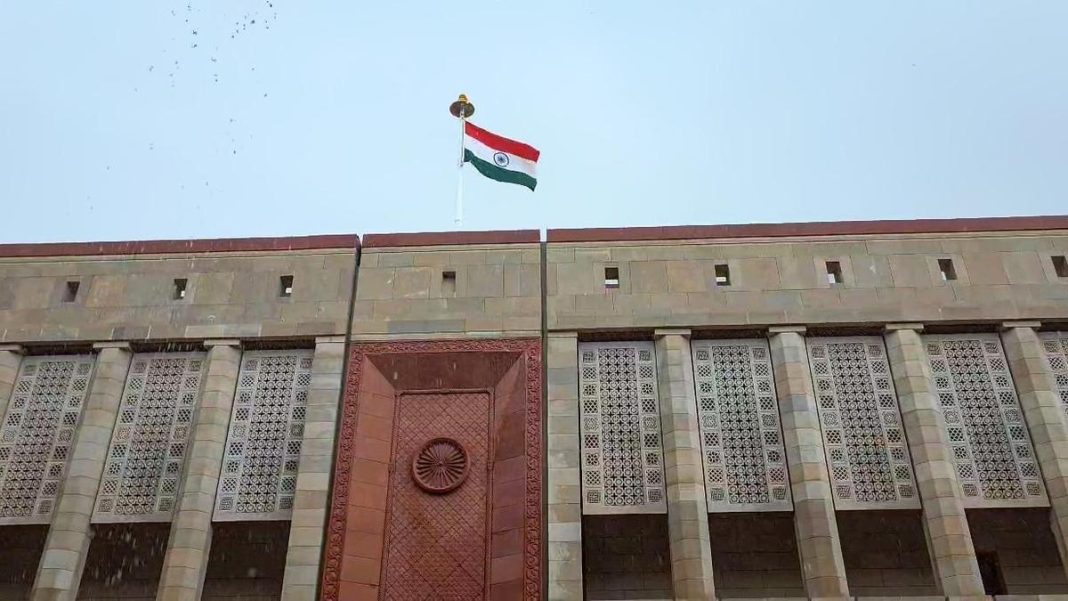As the chill of winter approaches, so does the much-anticipated Winter Session of India’s Parliament, a period traditionally earmarked for robust legislative activity and crucial policy debates. Slated to deliberate on a range of pressing national issues, this session is expected to table at least ten new legislations, with particular attention drawn to a proposed bill concerning the vital civil nuclear sector. This move signals the government’s proactive stance on accelerating economic growth, enhancing energy security, and modernising governance structures across the nation.
The upcoming legislative agenda reflects a comprehensive approach, touching upon various facets of national development. From amendments aimed at streamlining economic processes to measures bolstering social welfare and digital security, the proposed bills underscore the government’s commitment to continuous reform. However, it is the legislation pertaining to India’s civil nuclear program that has garnered significant interest, pointing towards a strategic push to diversify energy sources and reduce carbon emissions.
Bolstering India’s Civil Nuclear Prowess
At the forefront of the proposed legislative changes is a bill designed to further strengthen and expand India’s civil nuclear capabilities. While specifics of the bill are yet to be fully disclosed, indications suggest it could involve amendments to existing frameworks, potentially the Atomic Energy Act of 1962, to facilitate greater investment, streamline regulatory processes, and foster private sector participation in the burgeoning nuclear energy landscape. India, already a significant player in nuclear power, aims to considerably scale up its nuclear energy contribution to meet its growing power demands and ambitious climate goals.
The emphasis on nuclear power stems from its potential as a clean, baseload energy source, crucial for India’s long-term energy security and its commitment to achieving Net Zero emissions by 2070. Enhancements in this sector could pave the way for faster construction of nuclear power plants, foster indigenous technological advancements, and create new opportunities for both public and private entities. The proposed legislation is likely to address issues such as liability, technology transfer, and international cooperation, aiming to make India an even more attractive destination for global collaboration in nuclear energy.
This strategic focus underscores a national vision that sees nuclear power not just as an energy solution, but as a critical component of India’s technological self-reliance and geopolitical standing. Modernising the legal framework around civil nuclear energy is a pivotal step towards unlocking its full potential, ensuring safety, and building public confidence in this complex yet promising sector.
A Spectrum of Legislative Priorities
Beyond the nuclear sector, the Winter Session’s legislative docket is poised to introduce several other significant bills. These include, but are not limited to, potential amendments related to digital personal data protection, a topic that has seen extensive public debate and expert consultation. A robust data protection law is seen as essential for safeguarding citizen privacy in an increasingly digitised world, while also fostering a secure environment for digital innovation and economic activity.
Additionally, other proposed legislations are expected to touch upon key economic reforms, possibly aimed at improving the ease of doing business, streamlining taxation, or enhancing the financial sector’s resilience. Bills concerning social welfare, labour codes, or administrative reforms might also find their way onto the parliamentary floor, reflecting the government’s multi-pronged strategy for inclusive growth and efficient governance. The diversity of the legislative agenda highlights the comprehensive nature of the challenges and opportunities India faces as it strives for sustained development.
A senior official from the Ministry of Parliamentary Affairs, speaking on the condition of anonymity, underscored the session’s critical role: “This Winter Session is poised to be a landmark period, driving legislative reforms essential for India’s progress across vital sectors, particularly in areas like energy security and digital governance. The proposed bills are a testament to our commitment to a modern, robust, and equitable India.” Such statements reinforce the government’s intent to utilise the parliamentary platform for significant policy shifts.
Anticipating Robust Parliamentary Discourse
The introduction of such a wide array of legislations guarantees a vibrant and often contentious parliamentary discourse. Debates around bills concerning economic policies, social justice, and national security are integral to India’s democratic process. While the government aims for swift passage, the opposition benches are expected to critically examine each proposal, ensuring thorough scrutiny and accountability. The success of the session will depend heavily on the spirit of cooperation and constructive engagement between all political parties.
The Winter Session is not merely about passing bills; it is about shaping the legal landscape that will define India’s trajectory for years to come. The proposed civil nuclear bill, alongside other crucial legislations, represents a significant step towards reinforcing India’s strategic autonomy, environmental commitments, and economic ambitions. As the session commences, the nation will keenly watch the deliberations, understanding that the decisions made within Parliament will have far-reaching implications for every citizen and for India’s position on the global stage.




